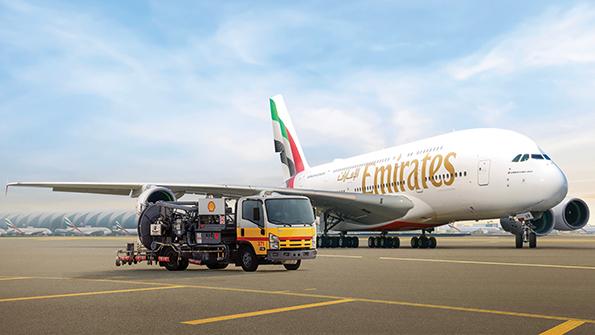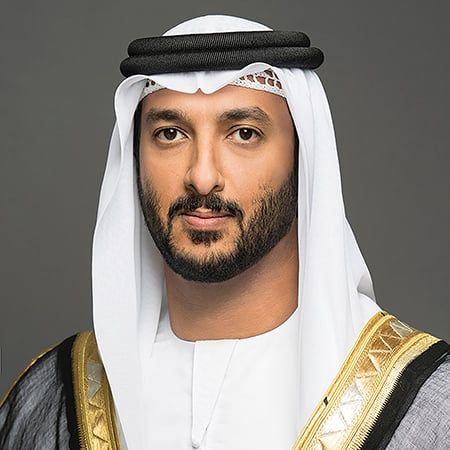Commentary: Aviation's Path Toward A Sustainable Future

Emirates and Shell Aviation are partnering to supply over 300,000 gallons of blended SAF at Dubai International Airport.
As the world grapples with climate change and travel rebounds globally following the COVID-19 pandemic, the aviation industry is at an inflection point. Confronted with the urgent need to reduce carbon emissions, as passenger numbers get closer to pre-pandemic levels, airlines, airports and manufacturers continue to hunt for economically viable fuel sources with lower environmental impact.
According to the World Economic Forum, enabling the global transition to emerging technologies and alternative propulsion methods, such as sustainable aviation fuel (SAF) and battery-electric or hydrogen-powered flight, will require an investment of approximately $175 billion per year, reaching a staggering $5 trillion by 2050. Airports will also need to invest around $100 billion in infrastructure to support hydrogen and electric flight. These are immense sums for an industry that operates on relatively narrow margins and is highly vulnerable to short-term economic shifts and shocks. It requires a herculean effort, and creative thinking, to develop and deploy the solutions at scale.

This drive for sustainable aviation practices opens the door to a new era of green aviation, where innovation and responsibility coexist. The accelerated development of SAF is essential to achieve it.
Aviation is central to the UAE’s economic story, now and in the future. It contributes more than 13% to the UAE’s GDP and supports 777,000 jobs, with a projected 170% increase in aviation’s GDP contribution over the next two decades, generating opportunities for 1.4 million jobs and contributing $128 billion to the national economy. This is transformational for a small country like ours, but this significant growth must not be accompanied by an equally large climate impact.
The UAE SAF roadmap has set a target of 700 million liters of SAF production by 2030, which will lead to an estimated reduction of 4.8 million tons of CO2. We are investing in research and development, improving infrastructure, and establishing robust regulatory frameworks to support production and utilization. That includes significant collaboration between Abu Dhabi National Oil Co. (ADNOC), BP and Masdar to develop clean hydrogen and technology hubs to explore SAF production from municipal waste and green hydrogen. Emirates Airline has further demonstrated its commitment by establishing a $200 million aviation sustainable fund. Etihad Airways and SATAVIA have taken a groundbreaking step with the industry’s first multiyear commercial agreement for contrail management and carbon credits within day-to-day operations. Furthermore, Emirates and Shell Aviation are set to supply over 300,000 gallons of blended SAF at Dubai International Airport (DXB), marking a historic achievement in SAF supply through the DXB airport fueling system, commencing later this year.
Like many major industrial nations across Europe, Asia and North America, rapidly scaling up SAF production is essential. But counterintuitively, the advanced infrastructure and experience in hydrocarbon fuel production, access to raw materials, and knowledge of how to maximize their efficiency serves us well in building SAF capacity. We hope to inspire other countries to use their understanding of traditional fuels to accelerate the transition to cleaner fuels.
In November, Dubai will host the aviation industry’s most important global gathering on this issue, the third ICAO Conference on Aviation and Alternative Fuels (CAAF/3). We believe that the outcomes of this conference will drive action immediately and for the long term, pushing new investment that shows economic growth, the enjoyment of travel and sustainable flying are all possible together.
The race to zero emissions in aviation transcends carbon reduction. It aims to redefine aviation as a force for good that benefits all of society in multiple ways. By seizing these opportunities, aviation can connect the world while preserving the planet for future generations, if we act decisively and strategically right now.
Abdulla Bin Touq Al Marri is the UAE Minister of Economy & chairman of the General Civil Aviation Authority (GCAA).




